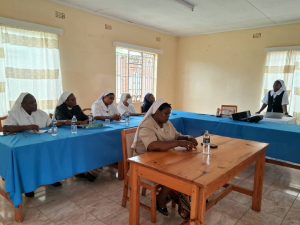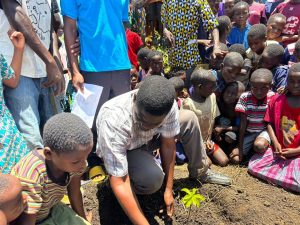MAREP Faces Challenges Despite Progress: CISONEC
Deputy Director Responsible for Malawi Rural Electrification Project (MAREP) in the ministry of energy, Francisco Chingoli, says MAREP phase 9 is making good strides as of today over 85% of the project is complete.
Chingoli expressed optimism that with the current progress, the government’s target of achieving 50% electrification by 2030 will be possible.
“The government has put in place so many measures to make sure that we should reach the target of 50% by 2030, you can even see that we have so many mini-grids where they’re feeding to the main-grid but we are also having some off-grid that have been put in place to make sure Malawi is having the access of 50% by 2030,” explained Chingoli.
Chingoli mentioned that the ministry is committed to ensure that there’s transparency and accountability in the project, stating the ministry’s various measures which have been implemented to ensure that procurement processes are fair and efficient.
He proposed to the government to reduce the number of approving layers during procurement processes at least two, citing that the current procedure provides a room for corruption.
“We are proposing to the government that the approving layers are just too many, maybe if they can review the act so that the approving layers must be reduced maybe to two, so that maybe once the procurement entity has done the evaluation process maybe the PPDA must be the last institution to see, if not so, then it’s good to bring all the concerned parties at one place and do the evaluation and get done by the end of the day not taking one procurement process up to six months because of too many layers,” added Chingoli.
Welani Chilenga, chairperson for parliamentary committee on climate change and natural resources with CISONEC National Coordinator, Julius Ng’oma
During a panel discussion on promoting equitable access to clean energy on Wednesday in Lilongwe, Civil Society Network on Climate Change (CISONEC) national coordinator, Julius Ng’oma, indicated that despite the program making strides, there are some areas that need to be improved.
Ng’oma noted that the program has been faced with challenges such as slowness to reach its targets, issues such as corruption and slow disbursement of funds as well as the identification and prioritization of suitable sites for electrification.
“We’ve already seen how things are going in terms of, for example, the slowness of the program. I think for the last couple of years, where few people, I mean the local communities or areas in the country have been connected,” Ng’oma explained.
Despite these challenges, Ng’oma appreciated that the current phase of MAREP has shown some improvement in terms of accelerating the electrification process, adding that more needs to be done to ensure that the program delivers on its promise of providing reliable and affordable electricity to all Malawians.
“Let’s just acknowledge the fact that maybe MAREP, the current phase of MAREP, has actually tried to expedite the process, but then we still have a lot of people that are not having access to electricity through the program,” added Ng’oma.
CISONEC believes MAREP can play a crucial role in promoting the use of clean energy if a lot of people have access to electricity.
By Lester Mhone



